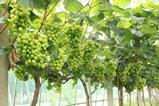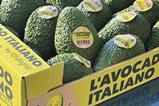Growing need for year-round volume at scale has led to emergence of major suppliers in several European countries
Consolidation in Europe’s organic fruit and vegetable business has led to an increase in the number of larger-scale grower suppliers that can meet the needs of big supermarket customers for a big enough volume of product all year round.
According to Daan Heidema and Maarten van Geest, two of the continent’s leading crop specialists who both work for major Dutch breeder Rijk Zwaan, more and more of Europe’s organic fruit and vegetables are now grown in controlled, protected environments by a smaller number of large-scale growers – a trend that apparently became even more pronounced the Covid-19 pandemic.
“Between 10 and 15 large organic companies are now operating in the Netherlands,” explains Van Geest, who advises greenhouse growers. “They have acquired small growers, especially since the pandemic. In Europe, protected cultivation of organic crops is not only rapidly scaling up, but the total production area is growing too. Big companies in Spain, Germany, Switzerland and Austria, for example, are specialising in growing organic produce to supply to supermarkets.”
Rijk Zwaan, which this year celebrates its 30th anniversary, has witnessed a marked shift in market dynamics over a relatively short period of time.
In those three decades, it says, the most notable change has been the emergence of bigger operators in the sector. “As demand from supermarkets has increased, organic farmers have grown too – both in Europe and worldwide,” says Heidema.
Van Geest agrees that one of the biggest factors in the growth of organic produce has been the role that supermarkets play. “Food retailers expect year-round availability, including for their organic range,” he observes. “Growers have responded to this by scaling up.”
Heidema believes it is more common nowadays for a grower association to reach supply agreements directly with its retail customers. “In Dutch supermarkets, for example, vacuum-packed beetroots are only available as organic variants, all year round,” he says. “Agreements like that can boost organic farming.”








